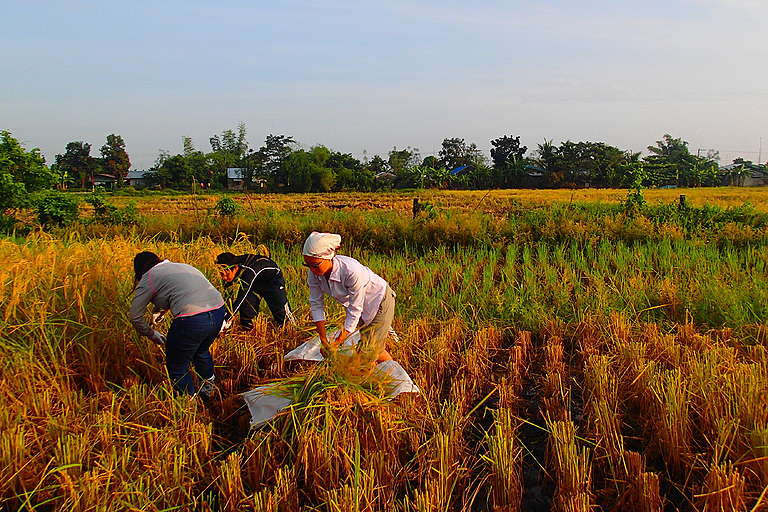Agroecotourism Connecting Consumers With Farmers
Better food systems: Connecting farmers and consumers
In today's fast-paced world, it's easy to lose touch with where our food comes from. Our supermarket shelves are stocked with a variety of products, but do we really know how they are produced? Greenpeace is working to bridge the gap between farmers and consumers, creating a better food system that benefits both parties and the planet.
One of the key issues in our current food system is the lack of transparency. Many consumers are unaware of the harmful practices that are used in the production of their food. Greenpeace aims to change this by providing information and resources that empower consumers to make more informed choices about what they eat.
What is Greenpeace doing to connect farmers and consumers? They are actively working to build networks and create opportunities for farmers to directly engage with consumers. This includes initiatives such as farmers' markets, community-supported agriculture programs, and farm-to-table restaurants. By creating these direct connections, Greenpeace is ensuring that farmers receive fair prices for their products while consumers have access to fresh, locally sourced food.
Ideas For a Better Food System include promoting sustainable farming practices, such as organic farming and regenerative agriculture. These methods not only protect the environment but also have numerous benefits for farmers and consumers. Organic farming avoids the use of synthetic pesticides and fertilizers, resulting in healthier soil and water systems. It also helps to preserve biodiversity and reduce greenhouse gas emissions.
Recommendations For a Better Food System also include supporting small-scale farmers and local food economies. By purchasing locally grown produce and supporting small businesses, consumers can make a big impact. This not only helps to strengthen local food systems but also reduces the carbon footprint associated with transporting food over long distances.
Listicle of Benefits of Connecting Farmers and Consumers:
- Improved Food Quality: By connecting directly with farmers, consumers have access to fresh, high-quality produce.
- Environmental Impact: Local sourcing reduces the carbon footprint associated with transporting food long distances.
- Economic Benefits: Supporting small-scale farmers helps to strengthen local economies and create jobs.
- Community Building: Farmers' markets and local food initiatives create opportunities for communities to come together and build relationships.
- Health and Well-being: Locally sourced food is often more nutritious and can contribute to a healthier lifestyle.
- Promotes Sustainable Agriculture: Direct consumer-farmer connections encourage the use of sustainable farming practices.
- Preserves Biodiversity: Supporting local farmers helps to preserve and protect local plant and animal species.
- Reduces Food Waste: By connecting directly with consumers, farmers can better manage their produce and reduce waste.
- Empowers Consumers: Building direct connections allows consumers to make more informed choices about their food and support ethical practices.
- Food Security: Local food systems increase resilience and reduce dependency on global supply chains.
Question & Answer:
Q: How can consumers support local farmers?
A: Consumers can support local farmers by purchasing their products from farmers' markets, joining community-supported agriculture programs, and dining at farm-to-table restaurants.
Q: What are some examples of sustainable farming practices?
A: Some examples of sustainable farming practices include organic farming, regenerative agriculture, and permaculture.
Q: How does connecting farmers and consumers benefit the environment?
A: Connecting farmers and consumers reduces the carbon footprint associated with transporting food long distances and promotes the use of sustainable farming practices that protect the environment.
Summary of Better Food Systems: Connecting Farmers and Consumers:
Greenpeace is working to create a better food system by connecting farmers and consumers. Through initiatives such as farmers' markets, community-supported agriculture programs, and farm-to-table restaurants, Greenpeace is building direct connections that benefit both parties. By supporting sustainable farming practices, local economies, and biodiversity, these connections have numerous benefits for the environment and our well-being. Consumers can make a difference by supporting local farmers and making informed choices about their food. Together, we can create a food system that is transparent, sustainable, and supports the well-being of farmers, consumers, and the planet.

Post a Comment for "Agroecotourism Connecting Consumers With Farmers"